As promised - some descriptions. On Tuesday, we went to the Citadel in the center of Amman. It was pretty amazing to see. I was obsessed with the doors and must have a hundred door pictures.
The Hill of the Citadel (Jabal al-Qal'a) is in the middle of Amman and was occupied as early as the Neolithic period, and fortified during the Bronze Age (1800 BC). The ruins on the hill today are Roman through early Islamic. The name "Amman" comes from "Rabbath Ammon," or "Great City of the Ammonites," who settled in the region some time after 1200 BC. The Bible records that King David captured the city in the early 10th century BC; Uriah the Hittite, husband of King David's paramour Bathsheba, was killed here after the king ordered him to the front line of battle.
The Temple of Hercules
The great temple of Hercules was built between 162-166 AD and is larger than any temple in Rome itself. The temple portico is framed by six 33-foot tall columns. The absence of columns on the rest of the structure, has convinced the excavator that the temple was actually left unfinished. A model of the temple is displayed here at ACOR, the American Center for Oriental Research in Amman.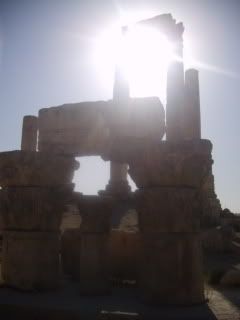
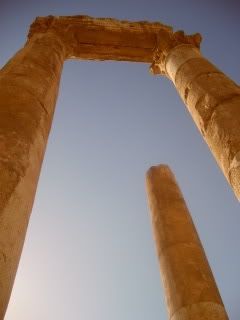
View of Amman from the Citadel hill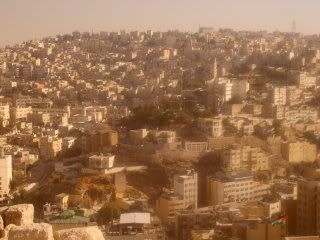
Ampitheater from Citadel - more pics of this to come. We walked down the hill and went inside.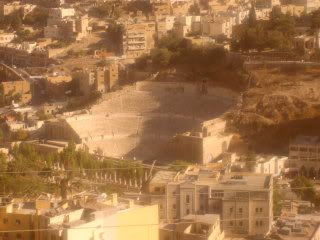
More temple of Hercules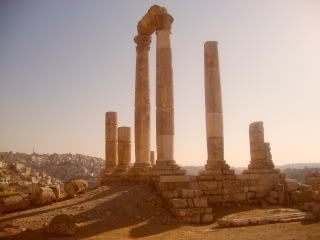
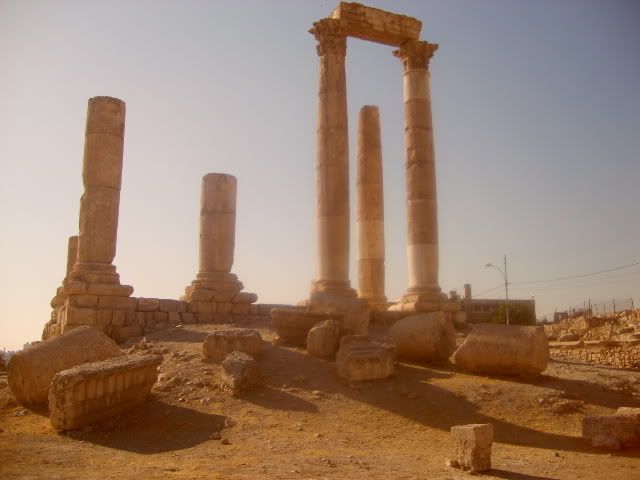
Inside the Byzantine church on the Citadel site - this dome is a recreation, the real one would have been covered and plastered.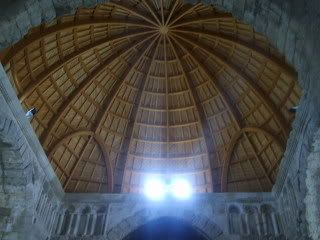
Byzantine church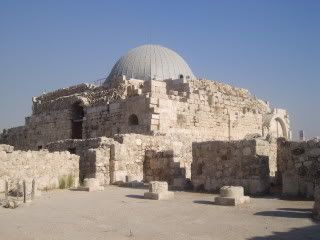
Pictures of the area (namely doors, but I have many more) around the church and the the Omayyad Palace--an impressive structure dating back to around 720AD and the rule of the Omayyad Arabs. Its exact function is unclear, but the building includes a monumental gateway, cruciform audience hall and four vaulted chambers. A colonnaded street runs through the complex and to the north and east, ruins of the palace grounds are visible.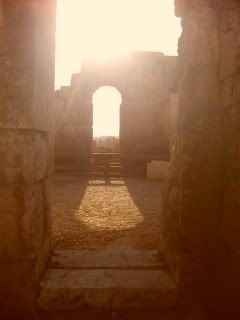
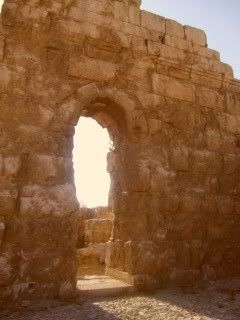
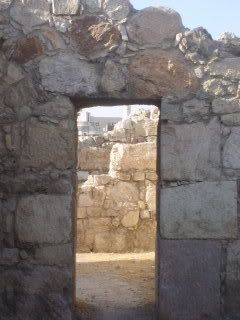
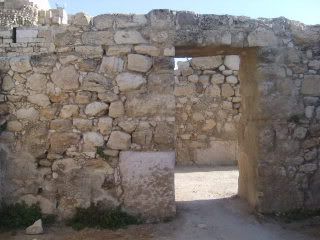
View from Citadel - said to be the world's largest flying national flag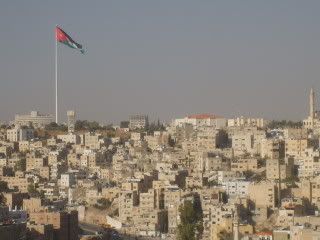
Edge of the Citadel looking down into the city of Amman.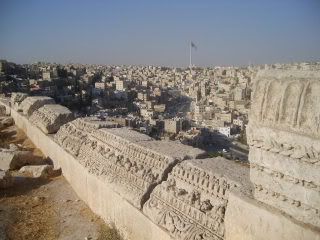
Wednesday, October 24, 2007
The Citadel updated
Labels:
Amman,
The Citadel
Subscribe to:
Post Comments (Atom)


No comments:
Post a Comment